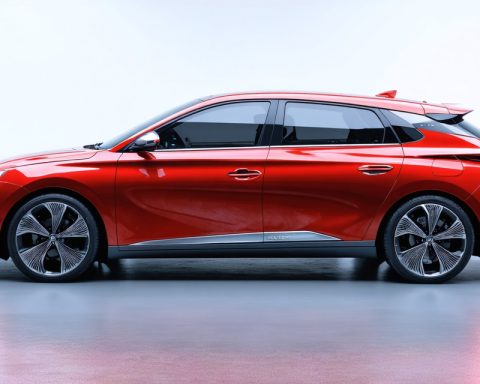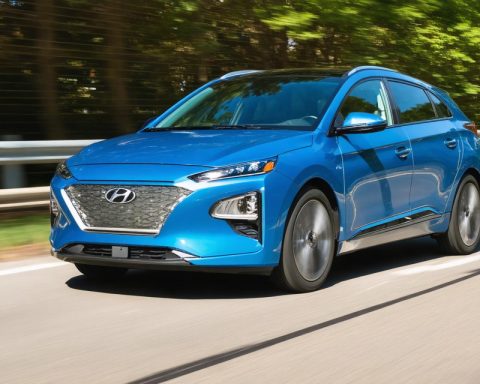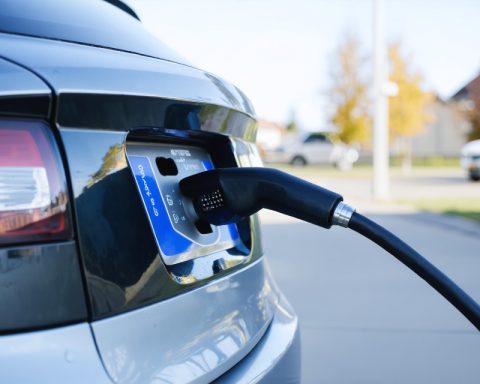- Electric vehicles (EVs) face new challenges as vehicle excise duty (VED) changes could negate annual savings of nearly £1,200 for UK drivers.
- From Tuesday, EVs in the UK will no longer enjoy tax exemptions and must comply with similar tax rules as petrol vehicles.
- Drivers of EVs priced over £40,000 will be subject to an annual tax of £425, impacting popular models like the Kia e-Niro and Volkswagen ID.3.
- The Energy and Climate Intelligence Unit (ECIU) warns that these tax changes could deter consumers and increase reliance on petrol vehicles.
- Despite tax challenges, the Zero Emissions Vehicle (ZEV) mandate supports innovation and competitive pricing among manufacturers.
- Advocates call for updated luxury tax thresholds to ensure fairness and encourage EV adoption amid high upfront costs.
- The future of the EV market depends on how policymakers balance economic strategy with consumer needs and environmental goals.
Electric vehicles are lauded as the vanguard of sustainable transportation, promising eco-friendly travel and long-term savings. Yet, a looming storm on the tax horizon threatens to dampen the allure of driving electric. The UK, a bastion of automotive innovation, now faces potential upheaval as its electric vehicle (EV) owners brace for a significant policy shift.
With electric cars maintaining their charm as the financially savvy choice over petrol-powered peers—a fact cemented by average savings of nearly £1,200 annually—changes to vehicle excise duty (VED) challenge this cost-saving narrative. As EV drivers anticipate losing their tax exemption, they are set to navigate new financial terrain. From Tuesday, the reality will sink in: all EVs, regardless of size or price, must bow to the same tax imperatives as their combustion engine counterparts.
The Treasury’s axe hovers not only over new EV purchases but digs deeper into the coffers of drivers of cars worth over £40,000, who will soon encounter an annual burden of £425 for several years. Critics argue that this threshold targets family-sized vehicles like the Kia e-Niro and Volkswagen ID.3, penalizing the very families and businesses that seek to align with the green agenda.
The Energy and Climate Intelligence Unit (ECIU) raises alarms over the repercussions of this fiscal tightening. Their analysis paints a picture of potential consumer hesitance—a retreat to petrol engines fueled by doubts over increasing EV costs. Even as the UK government touts its commitment to fostering a robust EV market, skeptics fear these measures could entrench the very petrol premium the nation strives to eradicate.
Despite the policy’s sting, there is a bright side: the zero emissions vehicle (ZEV) mandate persists, pushing manufacturers to innovate. This policy keeps the competitive spirit alive among car makers, nudging prices downward and fueling the transition to cleaner vehicles. However, without careful navigation, these conflicting forces risk leaving would-be EV adopters in a quandary.
Ginny Buckley, a sterling voice in the EV community, champions the need for an updated luxury tax threshold. Her call to action for government review emphasizes fairness, especially as many consumers navigate the higher upfront costs endemic to EVs.
Yet, while tax shifts murmur discontent, the government argues its strategy fosters both fiscal health and environmental responsibility—a tightrope walk between enticing adoption and maintaining budgetary stability.
The takeaway is clear: the EV revolution stands at a critical juncture. As taxation tides shift, policymakers face mounting pressure to align economic strategy with the evolving needs of consumers. Whether these new rules propel or impede progress hinges on forthcoming dialogue, innovation, and balancing the scales of environmental advocacy with economic reality.
Impending Tax Changes Threaten the UK’s Electric Vehicle Appeal: What You Need to Know
Introduction
The UK government’s decision to impose vehicle excise duty (VED) on electric vehicles (EVs) is stirring debate across automotive and environmental circles. This move, which challenges the traditionally untaxed status of EVs, is poised to alter the landscape of sustainable transportation. As EV enthusiasts and potential buyers contemplate the implications, it’s crucial to dissect how these changes might affect the future of green travel and household budgets.
Understanding the Policy Shift
The imminent policy shift indicates that all EVs, irrespective of their model or cost, will be subjected to the same tax regulations as traditional combustion engine vehicles. Owners of EVs valued at over £40,000 will experience a significant annual tax burden of approximately £425. These changes could especially impact families and small businesses choosing models like the Kia e-Niro and Volkswagen ID.3 for their versatile utility.
Key Concerns and Implications
1. Cost Implications for EV Owners:
– EV drivers who have enjoyed substantial annual savings of nearly £1,200 over petrol vehicles now face reduced financial incentives. These savings, a significant factor in the electric vehicle’s appeal, are compromised, potentially deterring new adopters from going electric.
2. Consumer Reactions and Industry Trends:
– The Energy and Climate Intelligence Unit (ECIU) suggests that these tax measures might drive consumers back to petrol engines, stalling the UK’s green agenda.
– Despite these challenges, the Zero Emissions Vehicle (ZEV) mandate continues to stimulate innovation among manufacturers, potentially leading to lower EV prices due to heightened competition.
How-To Steps & Life Hacks for Prospective EV Buyers
– Evaluate Total Cost of Ownership:
Consider not just the purchase price but also maintenance, insurance, fuel (electricity vs. petrol), and new tax implications.
– Research Government Incentives:
Investigate local and national subsidies or incentives that may offset the new tax burden.
– Explore Financing Options:
Look into competitive financing or leasing offers that may reduce upfront costs associated with purchasing an EV.
Real-World Use Cases
– Families Considering Larger Vehicles:
Those looking at models like the Volkswagen ID.3 may need to factor in the additional tax costs versus fuel savings over the vehicle’s lifetime.
– Businesses Integrating EV Fleets:
Analyze the tax benefits and drawbacks for fleet vehicles as part of long-term sustainability plans.
Market Forecasts & Industry Trends
The EV market is expected to continue its growth trajectory, yet policy-induced hesitancy might slow momentum. Industry analysts predict that while taxes could depress immediate purchasing enthusiasm, falling battery costs and continued technological advances will drive eventual widespread EV adoption.
Actionable Recommendations
– Monitor Policy Developments:
Stay informed about any potential changes to tax laws and emerging subsidies that could alter the financial landscape for EV ownership.
– Advocate for Policy Adjustments:
Support advocacy groups calling for revised luxury tax thresholds to better reflect the realities of the EV market.
Conclusion
The introduction of VED on electric vehicles poses both challenges and opportunities. While some potential buyers may reconsider their choices, others might find long-term savings through innovation and policy. As the industry adapts to these fresh challenges, informed decision-making and proactive engagement could be key to navigating this evolving market.
More insights and updates can be found on automotive and policy-focused platforms like AutoTrader UK and GOV.UK.
















